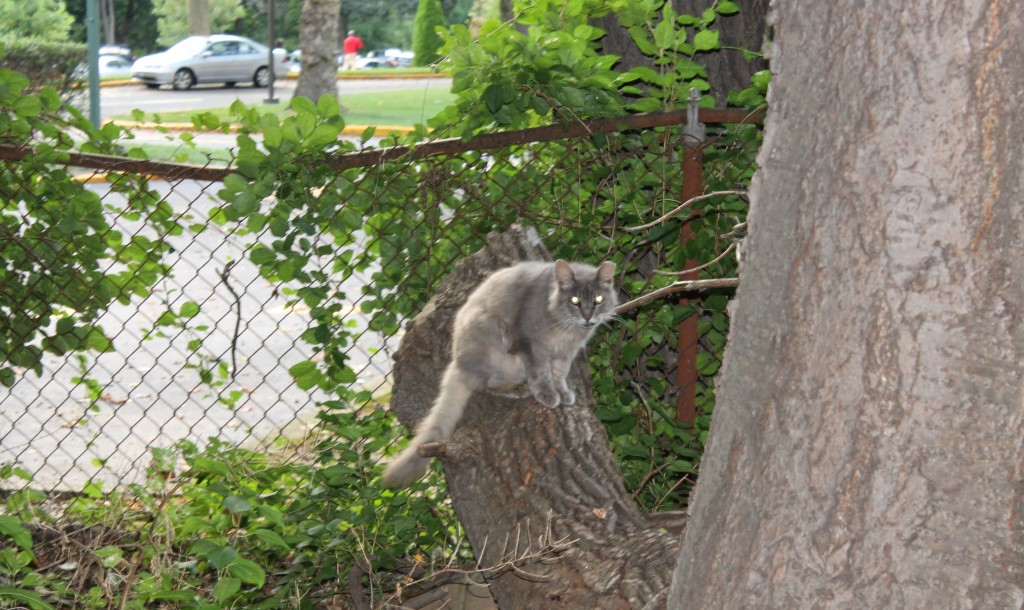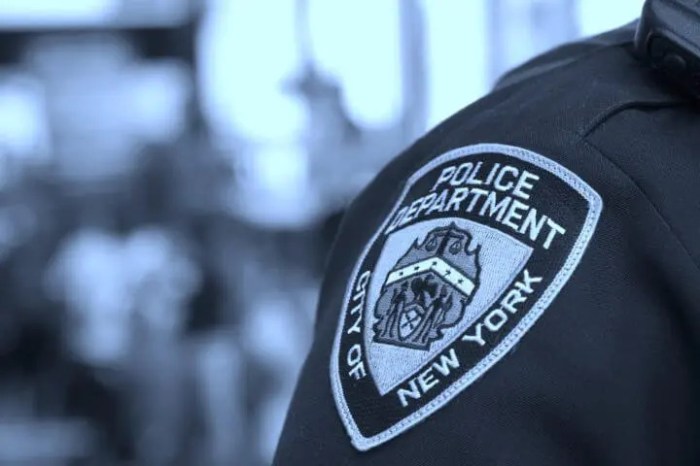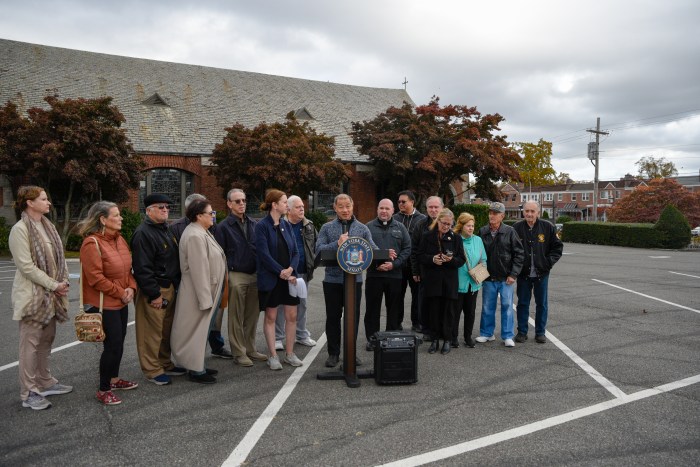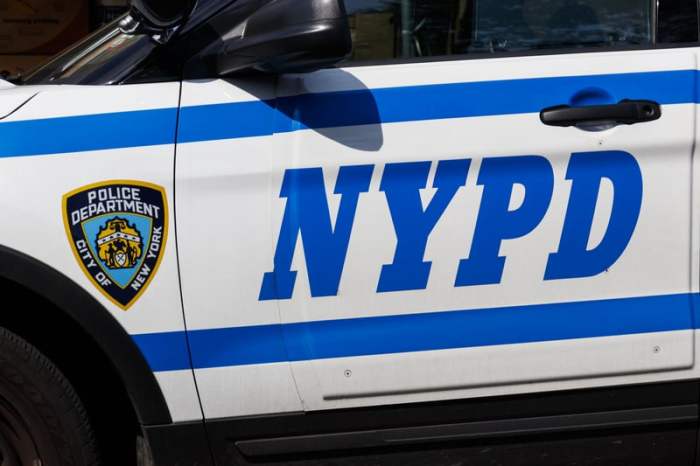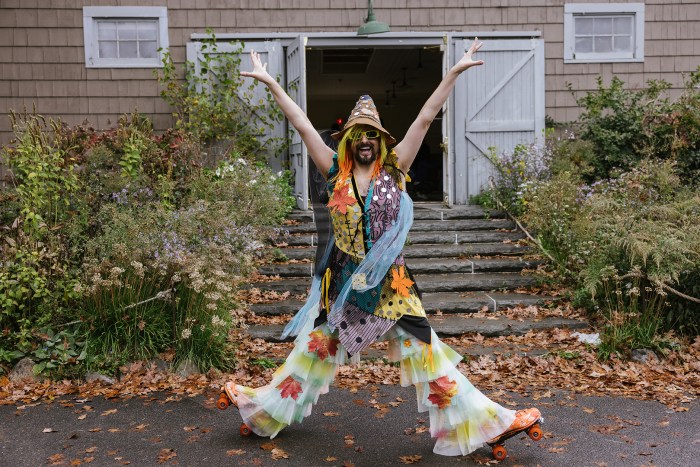Things aren’t so purr-fect for one Fresh Meadows community.
Fresh Meadows residents are alarmed by what they say is an increasing number of stray cats overrunning residential streets and nearby Cunningham Park.
Many of the cats belong to a feral colony located off a walking path in Cunningham Park near the corner of 199th Street and 73rd Avenue. The spot — set up by an unknown caretaker who has been spotted by nearby residents — has enough food and shelter to support a large group of animals. At least 12 bowls of dry cat food were left open and 10 discarded Christmas trees were serving as permanent shelter for the felines on a recent evening. There were also several kennels left open and lined with natural fibers for warmth.
Four cats could be seen in the colony during a 30-minute time frame.
Melissa McFadden, a Fresh Meadows homeowner who lives a block away from the park, said that she has seen an uptick of strays in the surrounding neighborhood as a result of the thriving colony.
“They are always wandering back and forth from the woods across the street into our yards,” McFadden said, adding that the feral felines exhibited aggressive behavior when approached by her small dog.
Feral cat colonies can be legally maintained by a certified caretaker if registered with the Feral Cat Initiative of the Mayor’s Alliance for NYC’s Animals. In order to become a certified caretaker, New Yorkers must attend a hands-on workshop on how to safely trap, neuter and return the animals into the wild.
According to Katy Hansen of Animal Care Centers of New York City, there is a managed feral cat colony in Cunningham Park, although she could not definitively say if the registered colony was the same one observed by The Courier.
Hansen did state that part of the agency’s ongoing problem is dealing with abandoned felines in city parks, which find their way to open containers of food.
“Unfortunately, domesticated cats are not used to having to find food on their own and thus may migrate to neighborhoods where outdoor food is readily available,” Hansen said.
Residents in the immediate vicinity of the park help to support the stray cat population by feeding them from open bowls of food left in their driveways as well. Some have as many as four or five bowls of cat food on their property, along with multiple kennels left open for the strays.
Alan Stratman, a resident less than four blocks away from the park, personally knew of some neighbors actively feeding the cats. He believes the stray cat population is growing because of the abundance of food, and said that it is not uncommon to see kittens roam the area as the animals breed.
“It’s out of control. It’s totally out of control,” Stratman said. “I understand people feeding the cats and they’re trying to be good, but it’s not helping.”
Sally Giles, a Fresh Meadows resident who feeds the cats from bowls on her property, said that she does it because she feels bad for animals that have no home. Unlike some of her neighbors, she was supportive of the existence of a large colony for them in the woods.
“I don’t understand why they’re against it. It’s not hurting them,” Giles said. “It’s one of God’s creatures. It’s helping animals that need help.”
The Mayor’s Alliance for NYC’s Animals could not be immediately reached for comment.

